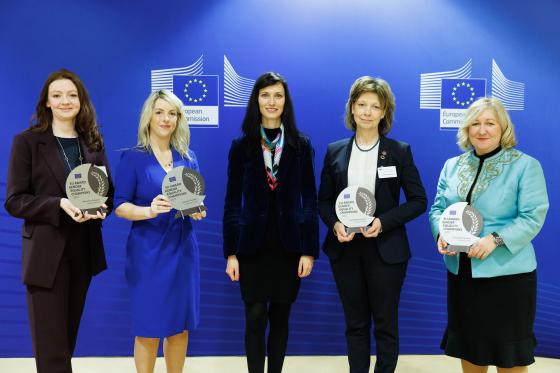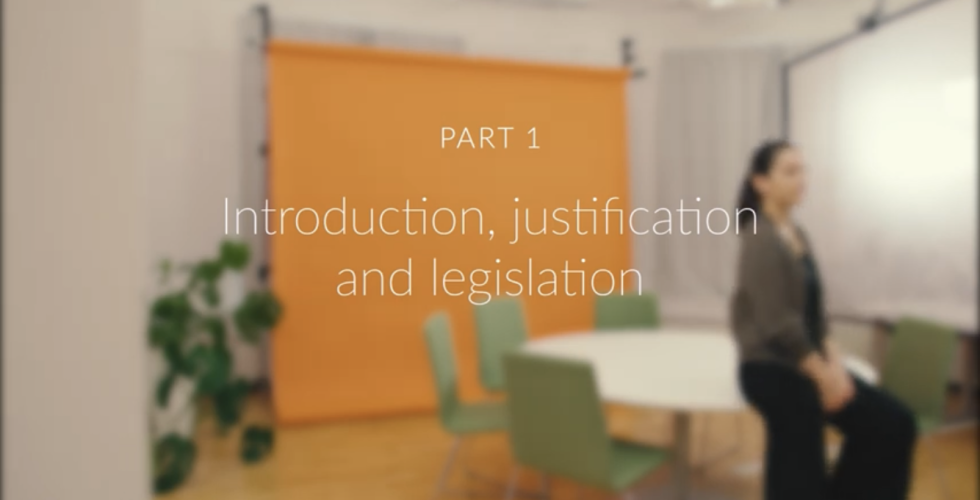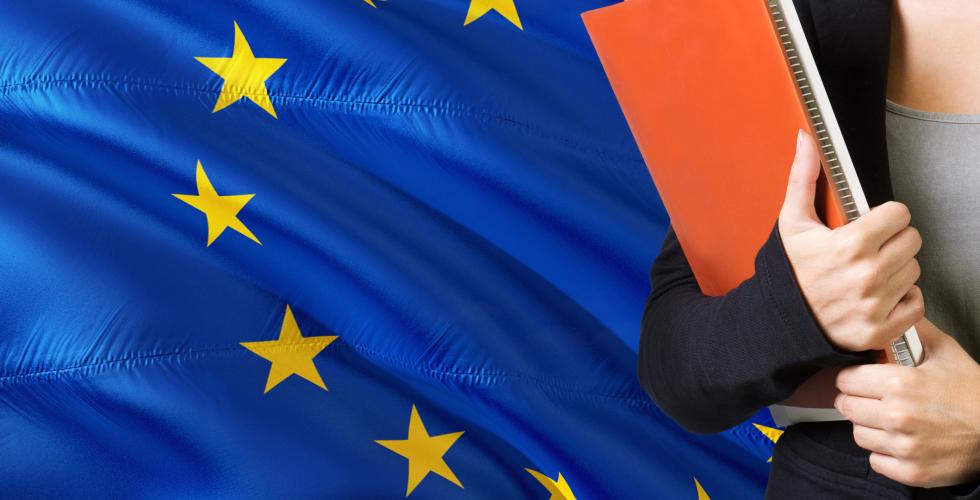Ireland is the new gender equality role model in the EU
The EU flew in the face of those who believed that Nordic countries would dominate the gender equality scene in European academia in 2023.
Last year, the European Commission announced that it would award prizes for the best efforts for achieving gender equality in the EU and associated countries, such as Norway. The research institutions could apply in three different categories: inclusive, newcomer, and sustainable gender equality.
On International Women's Day on 8 March, Mariya Gabriel, the European Commissioner for Innovation, Research, Culture, Education and Youth, presented four gender equality prizes.
Three of the prizes went to Irish educational institutions and one to the Karolinska Institute in Sweden. All four will receive €100,000 each.
This year's prizes:
- Trinity College Dublin, Ireland: Sustainable Gender Equality Champion.
- Karolinska Institute, Sweden: Sustainable Gender Equality Champion.
- Maynooth University, Ireland: Newcomer Gender Equality Champion.
- South East Technological University, Ireland: Inclusive Gender Equality Champion.
Karolinska and Trinity – best sustainable achievement
Trinity writes on their website that they see the award as recognition of their century-old efforts to work towards gender equality on their campus and in their sector. According to the university, they have put in place many initiatives to increase women's participation, not only in recent years, but for the whole of the past century.
Trinity emphasised a number of highlights in their application, including:
- A Bronze level Athena Swan Gender Equality Charter Award in 2015, and a total of 17 bronze Athena Swan awards across the university.
- The first university creche for students and employees' children was opened in 1969.
- The Centre for Women's Studies was established in 1989.
The only winner from the Nordic countries was the Karolinska Institute (KI). Like Trinity, KI also received an award for its sustainable gender equality. On the institution's website, they state that after almost 40 years of working towards gender equality, KI has been named a European role model for gender equality. The award was accepted by Annika Östman Wernerson, the new president of KI.
Karolinska had its first gender equality action plan in 1988. Milestones in its gender equality work include:
- The gender equality perspective is integrated into everything from core strategies to governing documents, and the senior management is responsible for driving the work.
- Training courses on such things as bias in assessment processes and counteracting discrimination and harassment.
- Has structures and regulations in place for an even distribution of genders in councils and committees.
The most inclusive university
An Irish university, South East Technological University (SETU), won the award for inclusive equality. SETU writes that the award recognises organisations with the most inclusive gender equality plans, i.e. those who work for gender balance, but see gender alongside other social categories such as ethnicity, social background, sexual orientation, gender identity and functional ability.
According to Allison Kenneally, Vice President for equality, diversity and inclusion at SETU, gender equality is everyone's responsibility, and the university is constantly working to create an inclusive and welcoming culture. The university looks forward to fighting for inclusive gender equality in the Irish and European education sector.
According to the European Commission, one of the goals is to make the Award for Gender Equality a tool for developing inclusive action plans. They would also like prize winners to inspire other research organisations to engage in equality work.
Newcomer
Another objective of the European Commission is to support the requirement for research organisations to have an action plan for gender equality. The winner of the newcomer award is Maynooth University in Ireland, which celebrated its 25th anniversary last year. They launched their gender equality work in 2017 and implemented their first gender equality plan in 2018.
In their application, the university emphasised what they had achieved in the five years since starting the equality work up until they applied for the EU Award for Gender Equality. Maynooth highlights, among other things:
- Establishment of the EDI Office, a department for equality, diversity and inclusion.
- Bronze-level Athena Swan awards for five departments.
- Action plan against sexual violence and harassment and the “Speak Out” system for anonymously reporting incidents.
Ireland leads the way
The Irish Department of Further and Higher Education, Research, Innovation and Science issued a press release on the same day that the prize winners were announced. Minister Simon Harris congratulated the three Irish universities – each led by a female – on winning three out of the four gender equality awards.
The press release goes on to say that since the first report on gender equality in the Irish higher education sector in 2016, Ireland has led the way in promoting gender equality in research in Europe.
Translated by Allegro Language Services.
The prize was announced in July 2022, and the deadline was in October for applying for the European Commission's award for the best gender equality work at European research organisations: EU Award for Gender Equality Champions.
Research institutions in EU countries and associated countries such as Norway could apply.
In total, four universities received awards on 8 March 2023, in the three categories of sustainable, newcomer, and inclusive gender equality.
The four winners are:
- Trinity College Dublin, Ireland: Sustainable Gender Equality Champion.
- Karolinska Institute, Sweden: Sustainable Gender Equality Champion.
- Maynooth University, Ireland: Newcomer Gender Equality Champion.
- South East Technological University, Ireland: Inclusive Gender Equality Champion.
Each winner will receive a prize of €100,000.
According to the European Commission, a total of 40 applications were received, including 24 applications that were inadmissible. The EU does not disclose which organisations applied, or the countries from where the applications came. The jury's assessment is also not public, only the criteria for the award.




